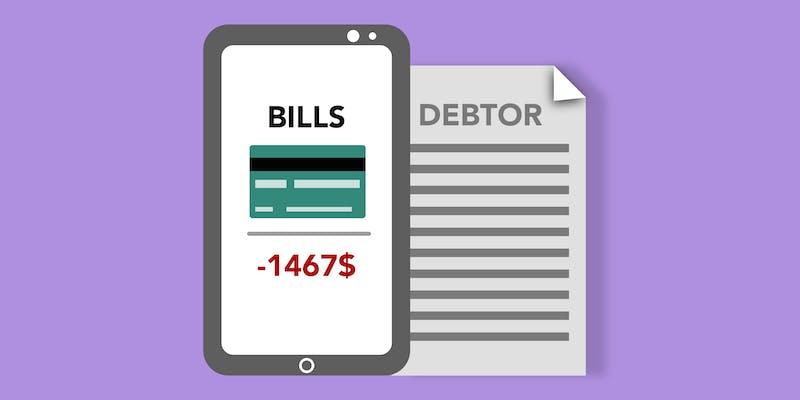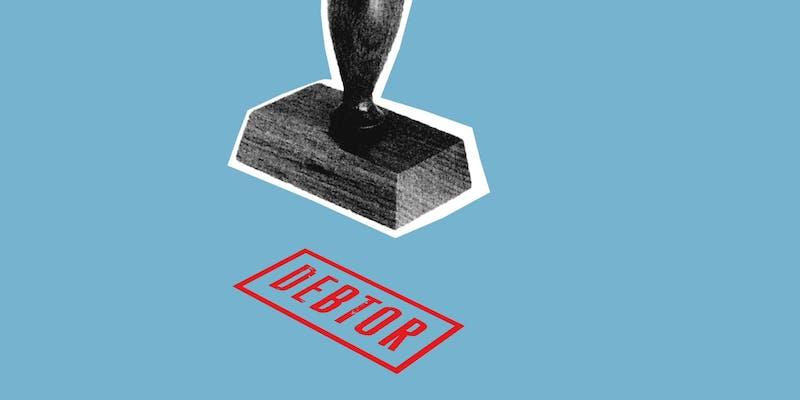Debt collection is a significant industry in the U.S., engaging with over a third of adults. When you receive a call about a debt you owe, you must respond and settle the debt. This obligation doesn't let the debt collector intimidate or threaten you.
It's better to contact the original lender and negotiate a repayment plan to avoid credit damage. Know your rights in the complex debt world. A debtor rights attorney can help you navigate the process and ensure fairness.
Your Basic Rights as a Debtor

There are several rights of a person in debt against the debt collector. The major ones are listed below.
The Right to Control Communication
As a debtor, you have significant control over how and when a debt collection agency contacts you. You can legally request them to cease calling you at your workplace or during inconvenient times.
Should you prefer not to be contacted, you can send a cease communication letter to the agency. Persistence in contact after this can be challenged legally.
Protection Against Harassment
Knowing your debtor rights is crucial when dealing with a debt collector. Inappropriate calls and verbal abuse are prohibited. Creditors cannot threaten violence, seize property, or arrest. If they threaten legal action, they must follow through.
If necessary, a debtor rights attorney can advise and defend. Remember that debtors have legal protections against harassment and deception in debt collection.
Statute of Limitations
Every state has a debt collector lawsuit deadline. This statute of limitations varies by state and debt type. A debt past this time is 'time-barred,' which you can use in court.
Liability for a Deceased Relative’s Debt
Generally, you are not responsible for a deceased relative's debt unless you were jointly involved in the account or married in a community property state. Creditors may attempt to collect from the deceased's estate but not from family members not associated with the debt.
Privacy of Debt Information
A debt collection agency is obligated to keep your debt information private. They cannot legally share details of your debt with anyone not associated with the account except your spouse. This privacy is crucial in maintaining the confidentiality of your financial matters.
Threats of Arrest or Bank Seizure
It's a common misconception that debt collectors can have you arrested or seize your bank account for non-payment. Such threats are typically illegal or made by scammers. Debt collectors do not possess the authority to enforce such severe actions immediately over a phone call.
How to Respond to a Debt Collection Agency
One must be smart enough to respond to the debt collectors professionally but safely. Some ways to respond are listed below.
Confirm the Collector's Identity
When a debt collection agency contacts you, it's crucial to establish its legitimacy. Politely request the caller's name, the name of their agency, its address, and contact information. This step ensures you're not dealing with imposters and helps maintain a record for future reference.
Document All Interactions
Keep a detailed log of every communication with the debt collection agency. Note down the names, dates, times, and the content of each conversation or correspondence. This detailed record-keeping is vital for tracking the collection process and can be essential in resolving disputes.
Prefer Written Communication
Request that all communications from the debt collection agency be in writing. This request can be formalized by sending your correspondence through certified mail, ensuring you have proof of receipt. Written records provide clarity and are more reliable than verbal agreements in disputes.
Ensure Written Follow-Up
Ask the debt collection agency to provide written summaries of conversations. This practice helps maintain clarity and accountability, ensuring that both parties consistently understand what was discussed and agreed upon.
Report Misleading Practices
If you encounter false, misleading, or harassing behavior from the debt collection agency, document these incidents meticulously. Include specific details in your correspondence with them. Reporting these instances is crucial for protecting your rights as a debtor.
Request Debt Details
Insist on receiving comprehensive information about the debt the agency claims you owe. This includes confirmation of amounts, dates, and the original creditor’s name. Having complete information allows you to verify the debt’s validity and understand its context.
Direct Communication
To avoid miscommunication, ensure that all interactions regarding the debt are directly with you unless you appoint an attorney. This control helps maintain privacy and prevents misunderstanding in the debt collection process.
Keep Records Indefinitely
Retain all records and documentation related to the debt indefinitely. These records can be crucial if a dispute arises in the future or if there's a need to reference past agreements or communications.
Validate Repayment Plans
If you agree on a repayment plan with the debt collection agency, obtain a written confirmation. This document should include terms of the plan and any promises regarding adjustments to your credit history, ensuring clarity and accountability.
Dispute Incorrect Debts
In cases where you believe the debt is in error, formally dispute it in writing. Request the debt collection agency to cease contacting you regarding the debt. They must stop collection attempts if they cannot prove the debt’s validity.
Avoid Unwarranted Payments
Never make payments for a debt you do not owe. Any payment, even to stop the collection agency from contacting you, can be misconstrued as acknowledging the debt.
Seek Professional Advice
Contact a reputable nonprofit credit counselor if you need help managing your debt. They can advise you on debt management and suggest a program that fits your needs.
Securing Validation and Proof of Debt

Within five days of debt collector contact, demand for validation. This notice confirms your debt and right to dispute it. You have 30 days to request debt proof, which is essential for legitimacy.
A validation notice should include:
- The collector's information.
- The original creditor's account number.
- An itemized debt breakdown.
- Your debtor rights.
Disputing the debt within 30 days stops collection until proof is provided.
Reporting Violations
Take action if a debt collector is unethical or sends suspicious letters. To protect your debtor rights, you can report such incidents to your attorney general. The Consumer Financial Protection Bureau (consumerfinance.gov or 855-411-2372) and the Federal Trade Commission (ftc.gov or 1-877-FTC-HELP) also accept such reports.
These agencies handle debt collectors who break the law or deceive consumers. Understand and exercise your debtor rights; consult a debtor rights attorney for specialized advice if needed.



